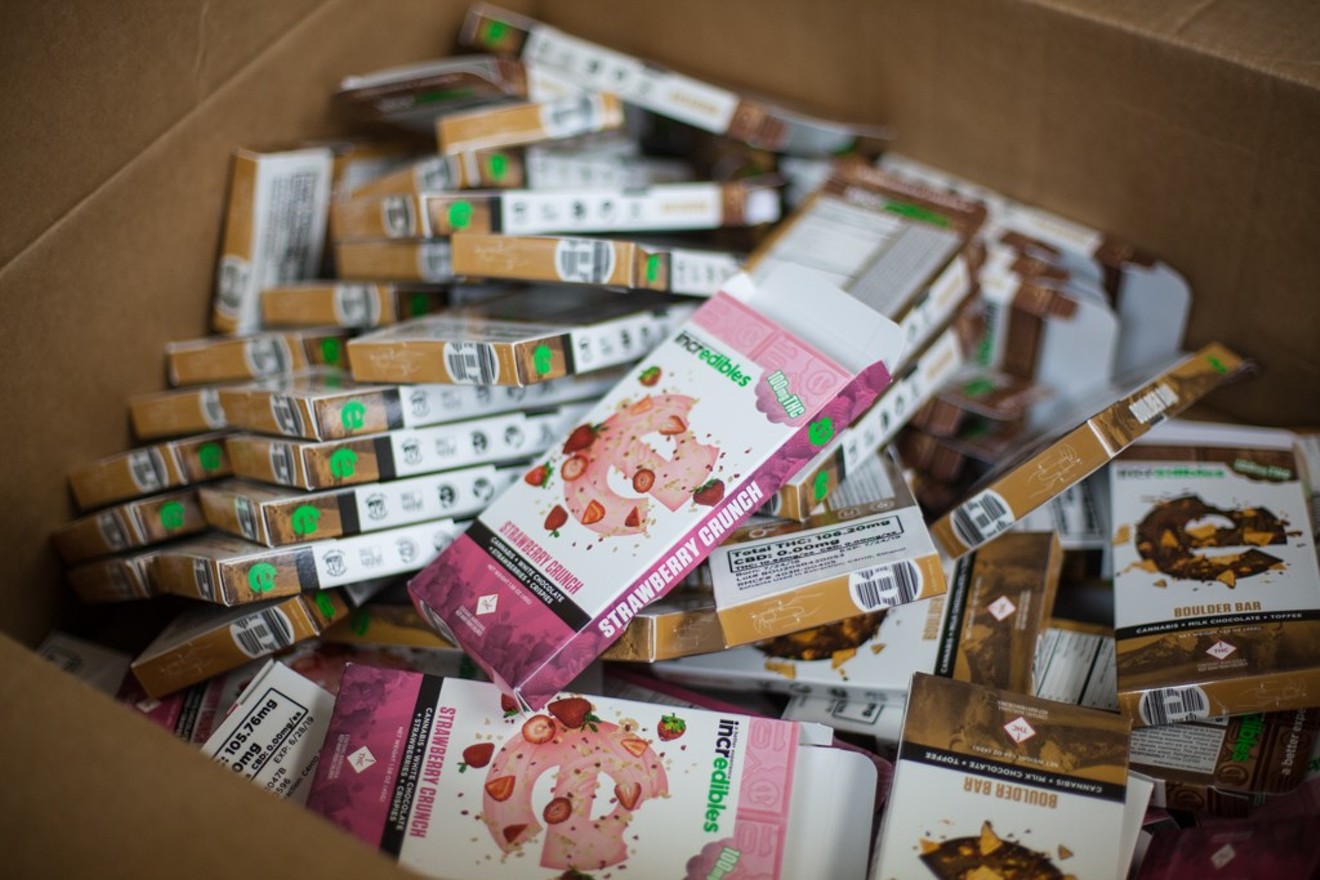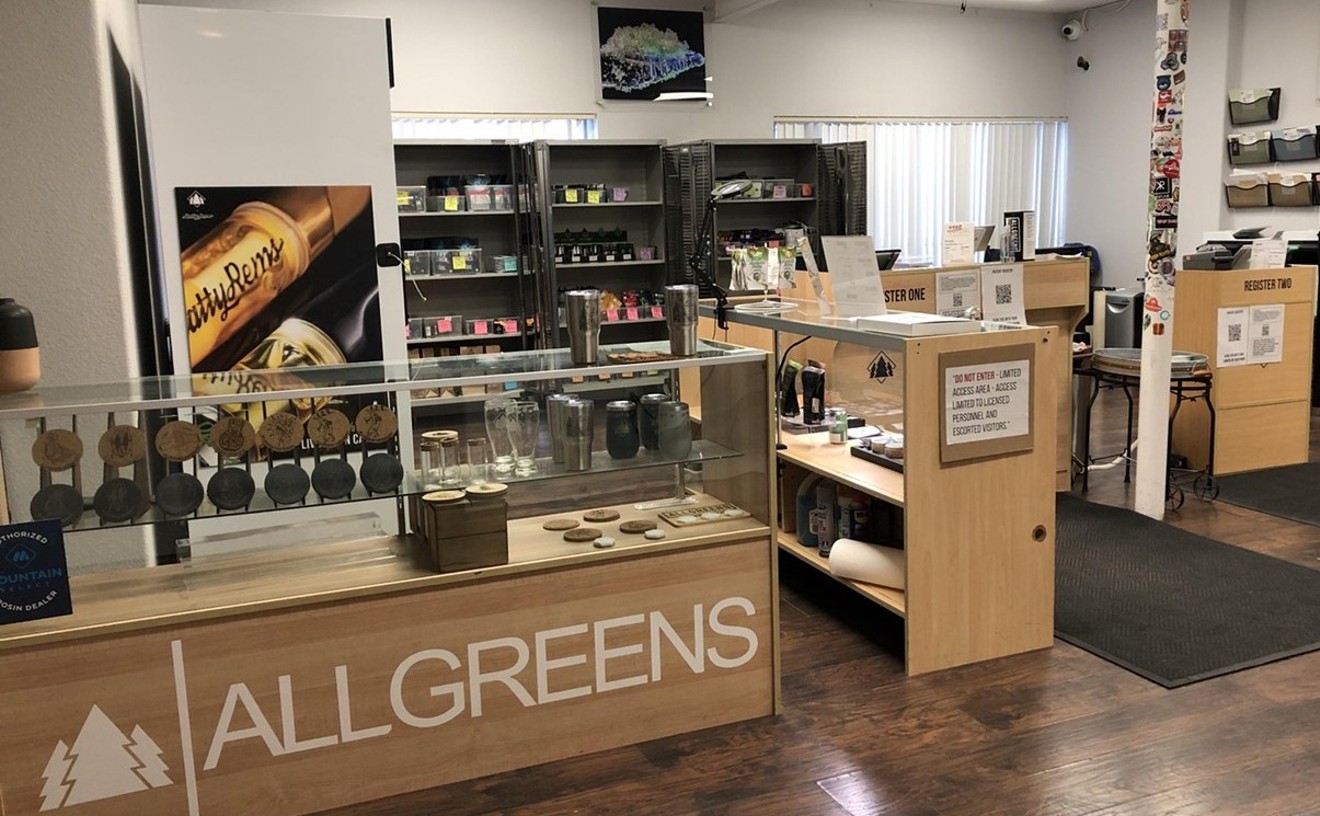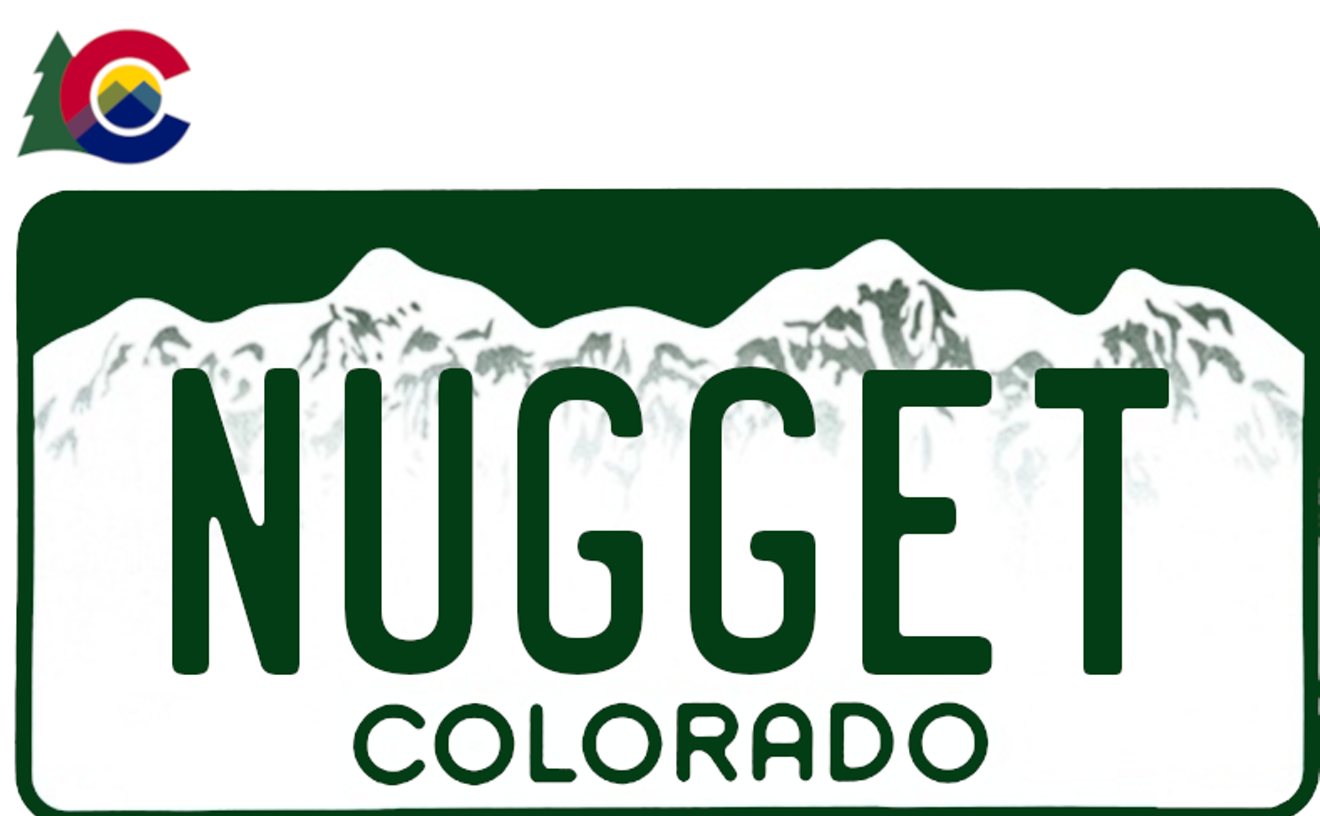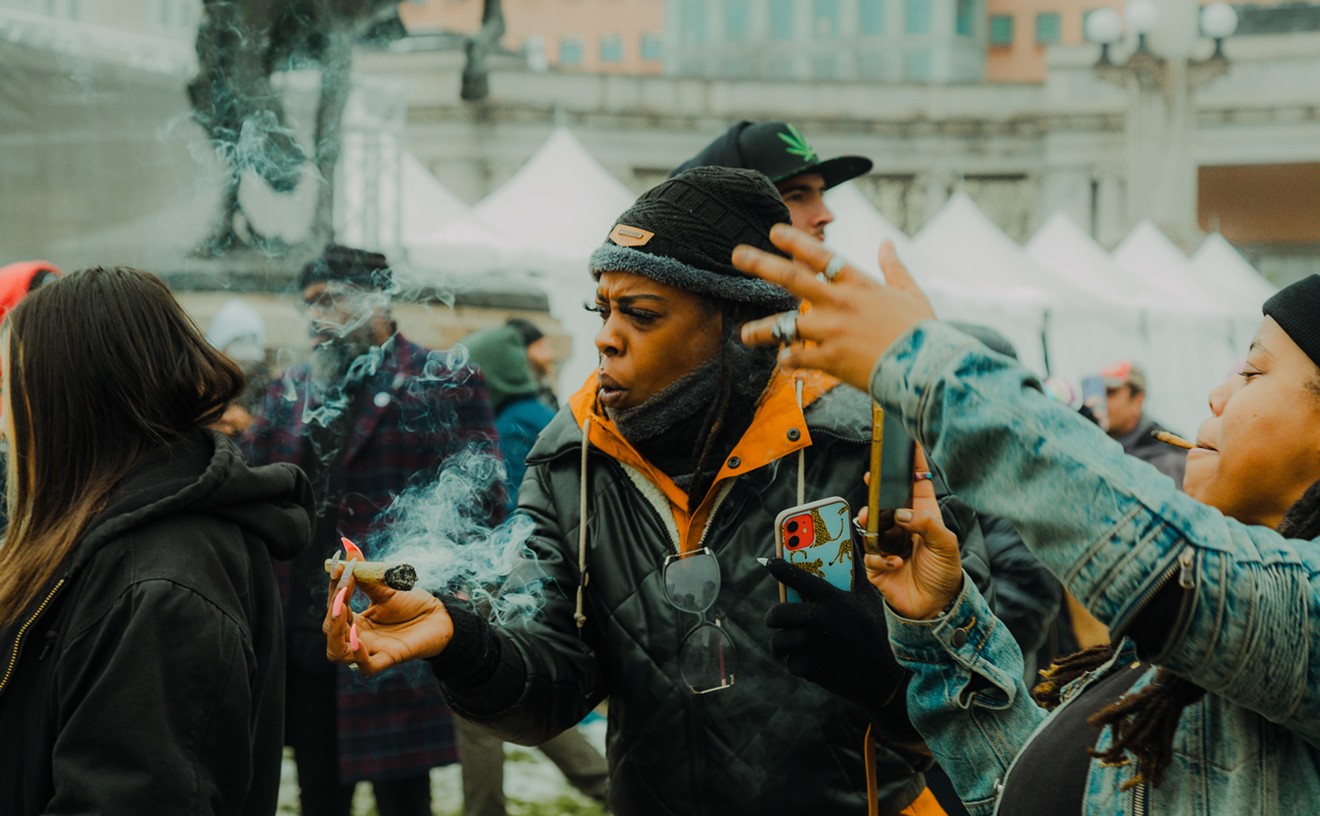Founded in 2010, Incredibles made a name for itself with its popular cannabis chocolate bars. But the infused-products brand has expanded its line to include live resin, tinctures, bath salts and suppositories, and it's even entered the emerging legal markets in California, Illinois, Nevada and Oregon.
To learn more about the edibles trade and what's next for infused products, Westword spoke with Incredibles founder Bob Eschino about what's been going on in the kitchen.
Westword: How'd you get involved in the cannabis industry?
Bob Eschino: I used to own a packaging and distribution house in Denver. Rick Scarpello, my partner, used to be a customer. We were always talking about ideas for side businesses, and most of them were about food. But nine or ten years ago, my brother became the medical caretaker for my grandmother. She was 89, had a lot of pain, couldn't sleep, had a loss of appetite and had arthritis, and my brother made infused cookies and topicals for her. That was the first time I saw cannabis as medicine.
Rick and I were talking about side businesses again, and that was when HB 1284, Colorado legislation that set up a regulatory framework for medical marijuana businesses, was coming [in 2010]. When I brought up making edibles in Rick's kitchen, he said no at first, but then he met my grandmother. Once he saw what I saw, he was in.
From a business standpoint, people didn't like edibles nine years ago because they were so inconsistent. No one could get an accurate dose on a edible, but that was Rick's specialty. For us, it came down to testing, accurate products, demarcation — all the things that are required today kind of came from us pushing the envelope years ago. Things like testing the cannabis oil or activating the THC: That's what people are looking for now.
We honestly we thought we'd make a couple hundred edibles a week. Years later, we're selling a couple hundred thousand units per month in Colorado.
Incredibles is well known for its candy bars and sweets, but what are some other parts of the industry in which you're participating or emerging?
The Wellness line we came out with about eight or ten months ago, those are items — bath salts, tinctures and suppositories — that had already been around for a while, but they're things that one of our partners used to help save his life years ago. A surgery had him on opiates, painkillers and all these prescriptions; doctors said he'd never get out of a wheelchair again. They ended up being wrong.
Bath salts, suppositories, tinctures — those were always a part of the company, but we just didn't have enough [plant material] to supply their production. Once there was more trim on the market, we could start taking some of those plants off the shelf and begin making products.
We started the extracts lines a couple of years ago with premium vape products and live resin. We also started a closed-loop-system business that provides the [extraction] technology to other companies. We ended up having to build our machine back then because none of the traditional [equipment] manufacturers were concerned with cannabis extraction — they thought it was just a Colorado rule. So we became the second approved business to make these closed-loop systems, and we've sold over 100 so far.
There's a lot of chatter about advancements in vaporizing, concentrates, nasal sprays, sublinguals and other infused products. What are the next big steps for edibles? What are some cool innovations that are on the way or taking place right now?
We just bought a new chocolate machine, so we'll be coming out with some single-serve products soon. It'll be more of a premium line, with chocolates that are filled with caramel or marshmallow. One of the things we're focusing on with these new products is making the effect more specific. Everyone wants an indica or sativa, daytime or nighttime designations, maybe some giggly effects — stuff like that.
We didn't know if we wanted to do that for our established candy bars, but some of these new products will be indica or sativa and have added probiotics or other additives like nutraceuticals. But we have to watch that, because our regulators' first responses are to already say no to something new. The hoops to jump through to add some of these additives into products is just unreasonable. We need to find out what we're allowed to even add into these before we start thinking about recipes, strains and things like that.
Incredibles is available in several other states and Canada. How do Colorado's cannabis market and consumer habits compare to those of states like Oregon and Washington — or newer states to come online, like Nevada?
I think Colorado is the breakdown of where every other state will end up. I think we're the most robust market, next to Washington, but I think Colorado's is even further along. We're seeing more of those products and trends drift into other states now, too.
A lot of that comes down to the manufacturers and people that were there. It took a while for people in Colorado to trust edibles. I think that was key to our earlier success: Everyone's tolerance is different, but once you figure out your optimal level, they'll keep coming back. As that starts happening in other states, we'll see that happen more.
Oregon's one of those states where people don't trust edibles, but that's starting to change. They're becoming more consistent out there. A lot of that is due to the black market: Consumers out there are so used to cheaper ways [to ingest], with no testing or dosages.
The East Coast is also moving toward commercial pot. Do those markets differ much from western states?
The emergence of our Wellness line was also kind of our East Coast line. States on the East Coast were banning hydrocarbon extraction processes and banning edibles, but we still wanted to serve that market and get out there.
Having those limitations on the East Coast and not having any products that were proven, that kind of prompted us to get everything forward into that market. We were already doing a really good line of tinctures for some patients, and their response to that helped propel us forward.
When you're banning some of these products, you're going to end up getting the results you want to avoid in the first place. If consumers don't have access to these vape pens, tinctures or edibles, that is when you force [them] to make these products at home.
[
{
"name": "Air - MediumRectangle - Inline Content - Mobile Display Size",
"component": "12017618",
"insertPoint": "2",
"requiredCountToDisplay": "2"
},{
"name": "Editor Picks",
"component": "17242653",
"insertPoint": "4",
"requiredCountToDisplay": "1"
},{
"name": "Inline Links",
"component": "18838239",
"insertPoint": "8th",
"startingPoint": 8,
"requiredCountToDisplay": "7",
"maxInsertions": 25
},{
"name": "Air - MediumRectangle - Combo - Inline Content",
"component": "17261320",
"insertPoint": "8th",
"startingPoint": 8,
"requiredCountToDisplay": "7",
"maxInsertions": 25
},{
"name": "Inline Links",
"component": "18838239",
"insertPoint": "8th",
"startingPoint": 12,
"requiredCountToDisplay": "11",
"maxInsertions": 25
},{
"name": "Air - Leaderboard Tower - Combo - Inline Content",
"component": "17261321",
"insertPoint": "8th",
"startingPoint": 12,
"requiredCountToDisplay": "11",
"maxInsertions": 25
}
]













